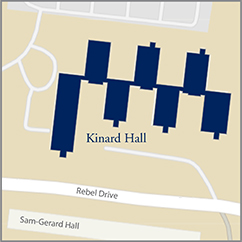Grants/Contracts
The University of Mississippi’s Clinical-Disaster Research Center (UM-CDRC) is comprised of a diverse team of researchers. Housed within the Department of Psychology, the UM-CDRC focuses on research, education, and service in disaster mental health. Research is a core aspect that underlies our initiative and efforts. Serving the community is the ultimate goal.
Since the Center was established in 2010, we have geared our efforts toward research, consultation, program evaluation, service, and training. The Center has been involved with a variety of different projects in collaboration with such agencies as the American Red Cross, the Mississippi Department of Mental Health, and the University of Mississippi.
Currently, the UM-CDRC is committed to analyzing and disseminating data collected following the 2010 Gulf Oil Spill. We are also committed to the development of evidence-based practices for disaster preparedness, and to the training of graduate clinicians, as well as the general public, in the most effective ways to prepare for, and respond to, disasters. The team is engaged in raising awareness in the community, teaching such important skills as psychological first aid (PFA). Below, summaries of fundamental aspects of our work are provided.
Disaster Mental Health Research: Disasters often occur unexpectedly and can cause significant difficulties for those affected. The UM-CDRC conducts research with people affected by disasters to better understand their experiences and how they cope with these events. The team engages in the dissemination of important findings in the disaster mental health field, presenting results at professional conferences and publishing papers in peer-reviewed, scientific journals. Currently, research efforts are underway with the goal of better understanding student attitudes and perceptions towards disaster preparedness, with findings serving as a foundation for disaster-related policies and practices.
Positive Psychology: Disasters are potentially traumatic experiences that can significantly affect people’s lives. Yet, most disaster survivors recover from these events, and in some cases people will experience post-traumatic growth. The UM-CDRC studies how positive attributes such as perceived meaning, resilience, and self-efficacy facilitate survivors’ recovery. The Center also focuses on developing preventive programs and teaching adaptive skills in schools, highlighting how such skills contribute to well-being in response to disasters.
Consultation: Research, training, and disaster response require considerable time, effort, and resources. The UM-CDRC consults with relief agencies and community organizations to undertake these complex tasks efficiently and effectively. Consultation efforts include the development of evidence-based, disaster-related programs as well as the training of mental health professionals and non-mental health professionals alike.
Program Evaluation: Following disasters, many programs are initiated to meet the needs of survivors. The UM-CDRC evaluates the program effectiveness of organizations as a means of ensuring that efficacious services are provided. We conduct a comprehensive assessment, taking into account individual differences, specific conditions of the services provided, and variables of well-being, in the implementation of outcome measures. The Center advocates for the judicious allocation of resources before, during, and after disaster events.
Disaster Response Training: Because disasters are difficult to predict, preparedness efforts are essential. By using training materials developed by the American Red Cross (ARC), the National Center for PTSD, and other agencies as a foundation, the UM-CDRC prepares communities and organizations to respond proactively when disasters occur. Currently, an undergraduate class is being offered at the university to educate students about disaster mental health. Topics include psychological distress after disasters, vulnerability and resilience, at-risk populations, and related interventions and services. A graduate course has recently been approved by the university and is anticipated for next year. A major goal is not only to prepare people for disasters, but also to emphasize empirical support as the foundation of disaster-related initiatives. Furthermore, an additional goal is to provide empirically-supported techniques to build resilience and promote well-being.

